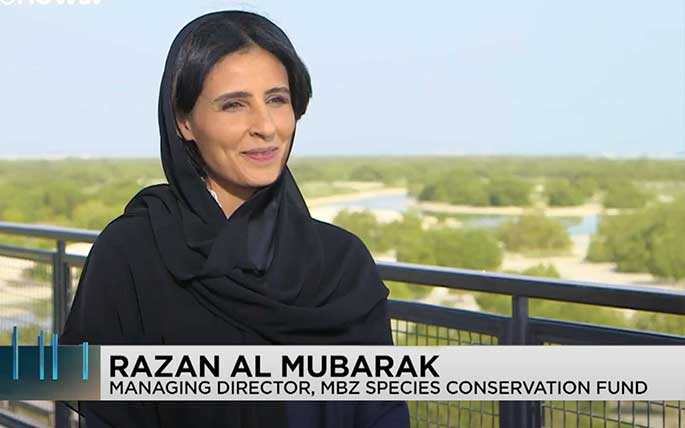The COVID-19 pandemic is a wake-up call that a seemingly innocuous event in one part of the world can have a profound effect on the other side of the planet in just a matter of days.
In an op-ed written for The Ecologist, Razan Al Mubarak makes a powerful case for the need for conservationists to work more closely with global health and trade authorities in order to prevent future pandemics, economic crises, climate catastrophe, biodiversity loss and other existential threats.
"What is clear to me now is that [conservationists] have yet to succeed in highlighting the critical link between nature and our own health, perhaps because it is only now that we are experiencing the magnitude of this link. We can no longer afford to beat around the bush: the origin of this pandemic and the ensuing socio-economic crisis is ultimately an ecological one. As we encroach upon and destroy wild spaces and the species that inhabit them, we are essentially destroying our first line of defense. By breaking existential protective barriers against pathogens we lose the natural dilution and filtering services that healthy ecosystems provide humanity."
Ms Al Mubarak also writes that the disjointed global response to COVID-19 underscores an erosion of trust in the multilateral governance structures that are required to protect the planet.
She says that the best way to handle such issues is to recommit to multilateral entities and seek ways for these entities to collaborate.
"I believe that this global crisis has taught us that respecting and acting through the mutual-dependence of organisations like the WHO, the WTO, and the International Union for Conservation of Nature (IUCN) is more important than ever. As we prepare to reopen our nations and implement ambitious recovery plans, we have to collectively recommit to a better, more encompassing and coordinated global governance, in order to prevent or address future pandemics, economic crises, climate catastrophe, biodiversity loss and other existential threats."

